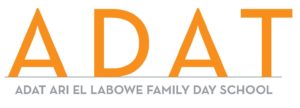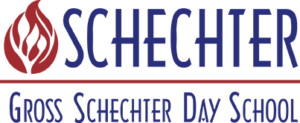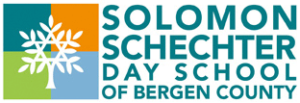 Having just gotten back from trips to Las Vegas, Los Gatos, and Los Angeles (trying to get all my “Las” and “Los” in one fail swoop), I think it is definitely a great opportunity to once again “shine the spotlight” on our schools!
Having just gotten back from trips to Las Vegas, Los Gatos, and Los Angeles (trying to get all my “Las” and “Los” in one fail swoop), I think it is definitely a great opportunity to once again “shine the spotlight” on our schools!
As a reminder…
…each of our schools was asked to share in their own words examples of programs and initiatives of what they think makes their school unique, special, excellent, and innovative. We promised to batch and share out as they come in, the first volume of which I published a few weeks ago. It is my pleasure to introduce you to three more of our amazing schools…
Name of School: Solomon Schechter Day School of Bergen County (New Milford, NJ)
Area of Strength/Passion/Specialty: STEAM, Inquiry Based Approach & Science Fair
The Science Department is creating and hosting a competition that will include schools from around the country. Students will have to solve logic problems, engineering challenges, and mathematics problems. This will be conducted live via web based technology.
Brief Description of Current Work/Projects:
- C-Span Student Cam 2016 documentary contest
- IB – All Middle School teachers are being trained in IB framework as we pursue IB accreditation
- Community Outreach – Our Live Streaming continues to be a success with the recent streaming of both the Siddur Ceremony and the Havdalah Ceremony.We have had very positive reviews of our streaming events.
Links to Photos/Articles/Videos of Current Work/Projects:
http://www.ustream.tv/channel/ssds-events
 Name of School: Adat Ari El Day School
Name of School: Adat Ari El Day School
Area of Strength/Passion/Specialty:
Through a progressive teaching lens – applying project-based learning and design thinking methodologies – our highly-trained faculty address the individual needs of each child by utilizing a specially developed, integrated curriculum. Indeed, academic excellence is a fundamental goal of Adat Ari El. We maintain a rigorous general and Hebrew/Judaic studies program, combined with top-notch instruction in STEAM (science, technology, engineering, art, and math), physical education, and music. Furthermore, ADAT supplements the core curriculum with extensive enrichment opportunities in all areas, as well as academic support, if needed. Our students graduate with all the skills and confidence to succeed in their next educational endeavors, and make a difference in the world.
Brief Description of Current Work/Projects:
Our school philosophy, rooted in the Design Thinking process, launched this year, along with the opening of a new Design Lab. What makes ADAT’s version of Design Thinking different is the added ingredient of empathy. It is the why we are doing what we are doing, not just the what. Jewish values should ultimately guide us to use a process like Design Thinking to gain a deeper understanding of the world around us and challenge us to try and make a difference.
The Design Lab is a creative action-oriented space that will provide heightened learning opportunities and a cutting-edge 21st century learning program – all wrapped up in the Design Thinking process. It is comprised of five different rooms: the Think Tank, Research Café, Development Center, Innovation Lab, and Digital Processing studio, each of which correspond to a step in the Design Thinking process. So, in short, we have an Innovation Lab AND four other rooms that allow our students to bring the Design Thinking philosophy to life.
Links to Photos/Articles/Videos of Current Work/Projects:
https://www.youtube.com/watch?v=jiTnr6ITOZE
http://www.aaedayschool.org/5509-2/
https://www.dropbox.com/sh/xvln5nq9gehsprj/AACsV0Mt1zx5-HCfOgSK0lP1a?oref=e&n=358967967
 Name of School: Gross Schechter Day School
Name of School: Gross Schechter Day School
Area of Strength/Passion/Specialty: STEM, Hebrew Language, Creative Writing, Critical Thinking
Brief Description of Current Work/Projects:
There’s no doubt that Gross Schechter has always had a strong science and mathematics program. Proof of this can be found in our excellent showing at Science Fair year after year, as well as our graduates’ record of advanced placement in math. However, as an institution committed to best practices and 21st century learning, this year we have incorporated increased hands-on projects and design challenges in the science lab. These projects help students gain critical thinking and problem solving skills through an enhanced science program, which more deeply integrates Science with Technology, Engineering and Mathematics (STEM). This integrated approach facilitates learning from an engineering point of view, which fosters creativity and promote participation (and enjoyment) for all students.
In eighth grade, we have combined two curricula, Engineering Fundamentals and Physics by Inquiry. Engineering Fundamentals is supported by The Center for Innovation in Jewish Education (CIJE) and emphasizes the Engineering Design Process. As a testament to our strong foundation in science here at Gross Schechter, we were one of 35 schools selected to receive a grant to implement this special program. In this course, students learn about the role of engineers in society and practice using some design engineering tools, such as drafting tools, computer aided drafting and bridge loading software. Students learn the fundamentals of engineering and then will be presented with design challenges. These challenges will require them to use physical science concepts to design and create a working model that meets the criteria of the design challenge.
Our adoption and integration of Physics by Inquiry is supported by The University of Akron Department of Physics and Department of Science Education. In this program,each of the design challenges and activities will be presented without the aid of formulas, laws, or theories. After data gathering and analysis, students will look for patterns and formulate rules that lead them to what we call The Laws of Physics. This approach engages students and keeps them on their toes as they learn through discovery.
At Schechter, it’s paramount that education is joyful and engaging (in all subject areas), and that our teaching inspires a lifelong pursuit of learning. We believe that these enhancements to our science program will do just that.
Three more schools of different sizes in different cities all of whom are doing great works, the “Schechter Difference” indeed! We look forward to introducing to you even more of our schools in the weeks and months ahead…






